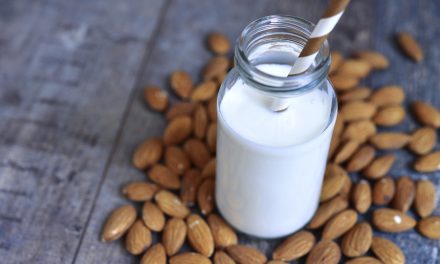Getting adequate amounts of vitamin D and vitamin K is essential for your health.
But some sources claim that supplementing with vitamin D is harmful if you are low in vitamin K.
So what’s the truth? This article looks into the science behind those claims.
What Are Vitamins D and K?
Vitamin D and vitamin K are essential, fat-soluble nutrients.
They are generally most abundant in high-fat foods, and their absorption into the bloodstream is enhanced when they are consumed with fat.
Often called the “sunshine vitamin,” vitamin D is abundant in fatty fish and fish oil, but it’s also produced by your skin when it’s exposed to sunlight.
One of vitamin D’s primary functions is to promote calcium absorption and maintain adequate calcium levels in your blood. A vitamin D deficiency may cause bone loss.
Vitamin K is found in leafy greens, fermented legumes and vegetables, as well as in some fatty, animal-sourced foods, such as egg yolk, liver and cheese.
It’s necessary for blood clotting and promotes the accumulation of calcium in your bones and teeth.
Summary: Vitamins D and K are fat-soluble nutrients that play an essential role in your body’s calcium metabolism.
Vitamins D and K Work as a Team

When it comes to calcium metabolism, vitamins D and K work together. Both play important roles.
The Role of Vitamin D
One of the main functions of vitamin D is to maintain adequate calcium levels in the blood.
There are two ways in which vitamin D can achieve this:
- Improving calcium absorption: Vitamin D enhances the absorption of calcium from the food you eat.
- Taking calcium from bone: When you don’t consume enough calcium, vitamin D maintains its blood levels by drawing on the body’s main calcium supply — your bones.
Maintaining adequate blood levels of calcium is essential. While calcium is best known for its role in bone health, it has many other vital functions in the body.
During periods of insufficient calcium intake, your body has no other choice but to use the calcium reserves in your bones, even though that may cause bone loss and osteoporosis over time.
The Role of Vitamin K
As mentioned above, vitamin D ensures that your blood levels of calcium are high enough to meet your body’s demands.
However, vitamin D does not fully control where the calcium in your body ends up. That’s where vitamin K steps in.
Vitamin K regulates calcium in your body in at least two ways:
- Promotes calcification of bone: Vitamin K activates osteocalcin, a protein that promotes the accumulation of calcium in your bones and teeth.
- Reduces calcification of soft tissues: Vitamin K activates matrix GLA protein, which prevents calcium from accumulating in soft tissues, such as the kidneys and blood vessels.
At this point, few controlled human studies have investigated the effects of vitamin K supplements on blood vessel calcification, but more studies are under way.
Blood vessel calcification is implicated in the development of chronic diseases, such as heart and kidney disease.
RELATED ARTICLES:
- Primary Cause of Heart Disease That You Probably Weren’t Aware Of
- Breaking: Sugar Industry Paid Harvard Scientists to Blame Fat for Heart Disease
Summary: One of vitamin D’s main functions is to ensure adequate levels of calcium in your blood. Vitamin K promotes calcium accumulation in your bones, while reducing its accumulation in soft tissues such as blood vessels.
Is Vitamin D Harmful Without Vitamin K?
Some people are concerned that a high vitamin D intake may promote blood vessel calcification and heart disease among those who are low in vitamin K.
Several lines of evidence partly support this idea:
- Vitamin D toxicity causes hypercalcemia: One symptom of extremely high vitamin D levels (toxicity) is hypercalcemia, a condition characterized by excessively high levels of calcium in the blood.
- Hypercalcemia leads to blood vessel calcification (BVC): In hypercalcemia, calcium and phosphorus levels become so high that calcium phosphate starts to accumulate in the lining of blood vessels.
- BVC is associated with heart disease: According to experts, blood vessel calcification is one of the main underlying causes of heart disease.
- Vitamin K deficiency is associated with BVC: Observational studies have linked low vitamin K levels to an increased risk of blood vessel calcification.
- High-dose vitamin K supplements prevented BVC in animals: A controlled study in rats at a high risk of calcification showed that a high-dose vitamin K2 supplement prevented BVC.
- Vitamin K supplements may reduce BVC in humans: One controlled study in older people showed that supplementing with 500 mcg of vitamin K1 every day for three years slowed BVC by 6%.
- High vitamin K intake may reduce the risk of heart disease: People who get high amounts of vitamin K2 from their diet are at a reduced risk of blood vessel calcification and heart disease.
Put simply, vitamin D toxicity may cause blood vessel calcification, while vitamin K may help prevent this from happening.
Although these strings of evidence may seem supportive enough, there are still a few missing puzzle pieces.
While extremely high doses of vitamin D may lead to dangerously high calcium levels and blood vessel calcification, it is still unclear if lower doses of vitamin D are harmful in the long term.
In 2007, one nutritionist proposed that high doses of vitamin D may deplete vitamin K, potentially causing vitamin K deficiency. More research is needed before the validity of this theory can be fully confirmed.
No strong evidence proves that moderate amounts of vitamin D are harmful without an adequate intake of vitamin K. However, research is ongoing, and the picture might become clearer in the near future.
Summary: Scientists don’t know whether high vitamin D intake is harmful when vitamin K intake is inadequate. Evidence suggests it might be a concern, but a definite conclusion cannot be reached at this point.
How Do You Get Enough Vitamin K?

Vitamin K comes in many different forms, traditionally divided into two groups:
- Vitamin K1 (phylloquinone): The most common form of vitamin K. It’s found in plants, notably leafy greens like kale and spinach.
- Vitamin K2 (menaquinone): This form is much rarer in food and mainly found in animal-sourced food and fermented foods like natto.
Vitamin K2 is actually a large family of compounds, including menaquinone-4 (MK-4) and menaquinone-7 (MK-7).
- MK-4: Found in animal-sourced foods like liver, fat, egg yolk and cheese.
- MK-7: Formed by bacterial fermentation and found in fermented foods, such as natto, miso and sauerkraut. It is also produced by your gut bacteria.
The current dietary recommendations do not distinguish between vitamin K1 and K2. For people aged 19 and older, the adequate intake is 90 mcg for women and 120 mcg for men.
The two charts below show the richest sources of vitamins K1 and K2, as well as the amounts these foods provide in a 100-gram serving.


Adding some of these foods to your daily diet would help you reach your requirements for vitamin K. Supplements are also widely available.
Since vitamin K is fat-soluble, consuming it with fat can improve absorption.
For instance, you could add a little oil to your leafy greens or take your supplements with a meal that contains fat.
Fortunately, many foods rich in vitamin K2 are also rich in fat. These include cheese, egg yolks and meat.
Do not take very high doses of vitamin K supplements before speaking with your doctor, as they may interact with certain medications.
Summary: Vitamin K1 is abundant in leafy, green vegetables, such as kale and spinach. Vitamin K2 is found in animal-sourced foods, such as liver, eggs and cheese, and fermented foods like natto.
The Bottom Line
Scientists are still investigating the functions of vitamins D and K.
They do not fully understand how they interact, but new pieces are gradually being added to the puzzle.
It’s clear that vitamin K benefits your heart and bones, but it’s unclear whether high-dose vitamin D supplements are harmful when you’re low in vitamin K.
Nevertheless, make sure to get adequate amounts of both vitamin D and K from your diet. Both of them are important.
*Article originally appeared at Authority Nutrition.












